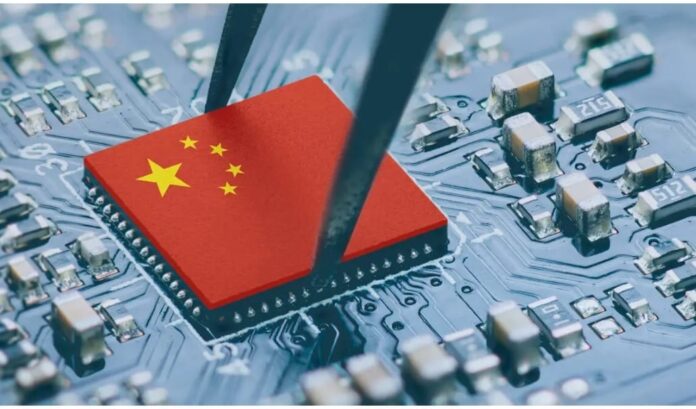Last week, Chinese company Huawei surprised everyone by unveiling their latest smartphone, the Mate 60 Pro. This smartphone features the Kirin 9000s chip, which is developed by Huawei and manufactured by China’s top contract chipmaker SMIC using advanced 7nm technology.
The positive feedback from early users, along with these findings, suggests that China is making significant progress in high-end chip development. This is noteworthy considering the increasing sanctions imposed by the US to limit China’s access to advanced chip-making tools.
The ban on Chinese industry purchasing semiconductors and chips from the US is the result of several factors, including national security concerns and trade tensions between the two countries. One major factor is the ongoing trade dispute between the US and China.
The US has restricted Chinese technology companies, especially those associated with Huawei, due to concerns about national security risks and intellectual property theft. Semi- conductors and chips are crucial components in various electronic devices, including tele-communications equipment, and the US has attempted to restrict China’s access to advanced technology.
The US government is also worried about China’s industrial policies, such as the “Made in China 2025” programme, which aims to promote self-sufficiency and dominance in high-tech industries, including semiconductors. These policies are seen as a threat to US technological leadership, leading to measures being implemented to limit Chinese access to advanced technologies.
In the past, China heavily relied on imported semiconductor chips for its technology industry, purchasing them from the US and the Netherlands for sectors such as consumer electronics, telecommunications, and automotive.
However, the US sanctions have limited China’s access to advanced semiconductor technology, aiming to hinder its aspirations of becoming a global leader in the industry. Instead, this has pushed China to invest in developing and manufacturing its own domestic semiconductor chips, requiring substantial investment in research and development, infrastructure, and talent.
Additionally, the US ban was intended to disrupt the supply chain of Chinese technology companies, resulting in potential disruptions to their production capabilities. This could have led to delays in product manufacturing and potentially increased costs. Ultimately, such impacts could have adverse effects on the competitiveness of Chinese technology products in the international market.
On the other hand, the ban has motivated China to accelerate its efforts towards self-sufficiency in the development of its domestic semiconductor and chip industry. Through initiatives like the “Made in China 2025” programme, China has already made significant investments in semiconductor manufacturing.
The ban on Huawei has functioned as a driving force, bolstering China’s self-reliance in semiconductor manufacturing and diminishing its reliance on overseas technology. Undeniably, China is rapidly emerging as a dominant player in the semiconductor and chip production realm. However, what measures would the US take if the sanctions were to fail egregiously? The end.
Mohamed Mohamoud Adde is an academic and a political Analyst specialising in offering expert analysis, insight and recommendations on Political developments.
(His goal is to aid stakeholders in making informed decisions and comprehending the complex dynamics of political systems.)


